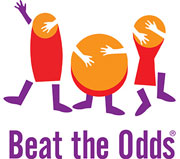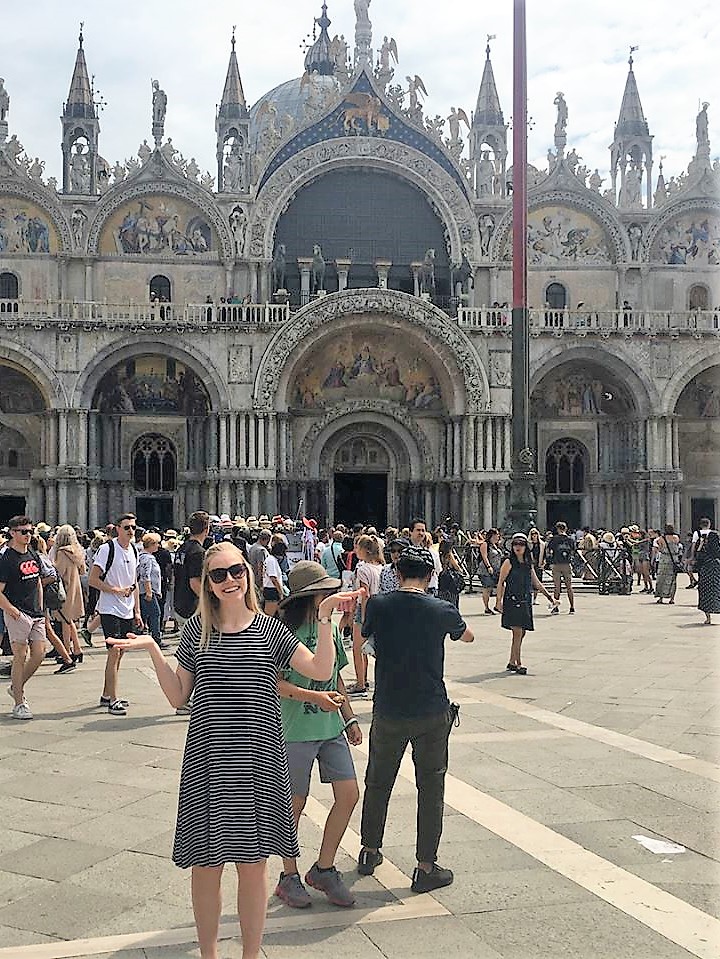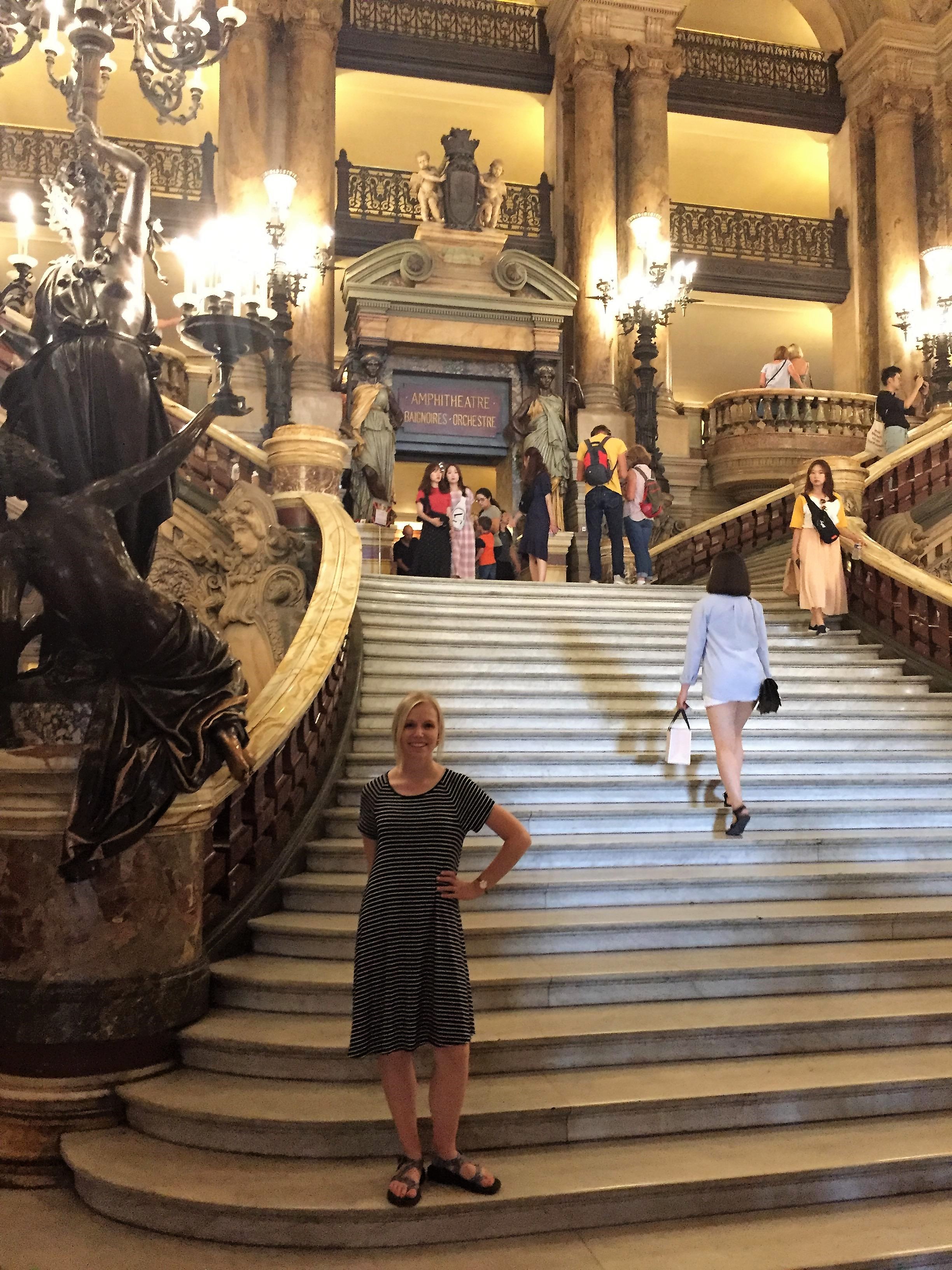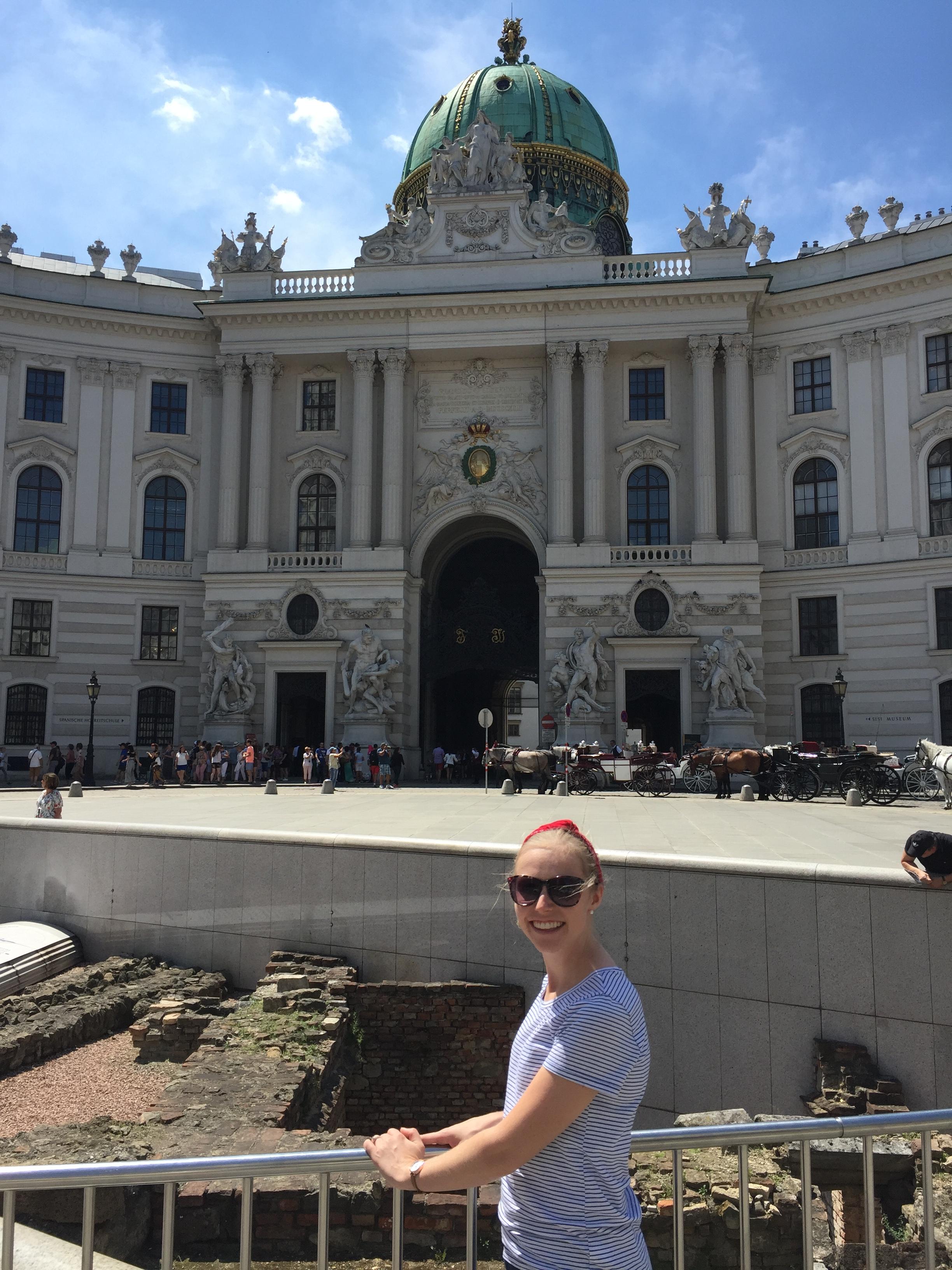Each Friday, we highlight one of our 2019 Fellows — their inspiration, itinerary, and plan for transforming student learning going forward. Today, however, we celebrate the completion of our first fellowship of the year!
Kristin Gladish (Newcomer Program – Indianapolis) obtained permission from her administration to embark on her fellowship during the first week of May — the only time UCLArts & Healing offers facilitator training for Beat the Odds, a trauma-informed program that integrates activities from group drumming and counseling to build core strengths such as team building, leadership, stress management, empathy and gratitude.
 “In short, my fellowship was amazing!” said Kristin. “As a student, then practicing as the facilitator, I learned how to mix in drum circle facilitation with affirmations, rhythm games, and activities to increase students’ focus, listening, self-awareness, and self-expression. The goal behind all of this is to incorporate counseling techniques into drum circles and help students who have experienced trauma.”
“In short, my fellowship was amazing!” said Kristin. “As a student, then practicing as the facilitator, I learned how to mix in drum circle facilitation with affirmations, rhythm games, and activities to increase students’ focus, listening, self-awareness, and self-expression. The goal behind all of this is to incorporate counseling techniques into drum circles and help students who have experienced trauma.”
For Kristin, that includes all of her students — refugees or newly arrived immigrants hailing from 15 countries and speaking 21 languages. Of her 257 music students in grades 2-10, 100 percent are minorities and qualify for free and reduced lunch.
An extension of her fellowship includes working with a local “Beat the Odds” trainer, which will help Kristin build local partnerships and community collaborations. In addition to the musical implications of her fellowship, she is also learning how to measure the results of the program through documented observations, pre- and post- student surveys, video evidence of musical/rhythm/social improvements, and attendance and grade data.
Kristin, who holds a bachelor and Master’s degree in Vocal Music, wasted no time implementing her fellowship. For the final three weeks of school, she is introducing the new drumming curriculum on instruments she also purchased with FFT grant money.
“Every country has some sort of drumming, and each student, no matter what language they speak, can learn to play a rhythmic pattern together and to keep a beat together,” said Kristin. “Beyond that, students will learn methods to relieve stress and to express their
feelings through drumming and words — valuable coping methods for students who experienced trauma and violence in their home countries and come to school struggling with inattention, depression, PTSD and anxiety.”

[minti_divider style=”3″ icon=”” margin=”20px 0px 20px 0px”]
 Kristin has taught music for 11 years in Lousiana, Texas, and now Indiana. She was the 2019 Teacher of the Year, and was a Top 10 Finalist for the Indianapolis Public Schools District Teacher of the Year. Kristin has completed her Level 1 Orff Training, and enjoys sewing and hiking in her free time.
Kristin has taught music for 11 years in Lousiana, Texas, and now Indiana. She was the 2019 Teacher of the Year, and was a Top 10 Finalist for the Indianapolis Public Schools District Teacher of the Year. Kristin has completed her Level 1 Orff Training, and enjoys sewing and hiking in her free time.



 Anna Beer’s book
Anna Beer’s book 



 Heather is an elementary music teacher in northwest Oklahoma City for Putnam City Schools. She has spent all four years of her teaching career at Lake Park Elementary, and currently serves on her school’s leadership team as the Specials Team Leader. Heather enjoys helping her students explore culture and history through music. You can see more images from her fellowship on Instagram
Heather is an elementary music teacher in northwest Oklahoma City for Putnam City Schools. She has spent all four years of her teaching career at Lake Park Elementary, and currently serves on her school’s leadership team as the Specials Team Leader. Heather enjoys helping her students explore culture and history through music. You can see more images from her fellowship on Instagram 
 Based on my TGC fellowship, I was able to apply to then attend a conference for alumni of government sponsored international travel. As a participant, I was invited to apply for money to create a project on the subject of inclusion. I was awarded a grant from the State Department to organize and implement the Inaugural ChiUnderOneRoof: Chicago Immigrant and Refugee Resource Fair. My students and I hosted hosted 25 local community organizations who work to support our immigrant and refugee population.
Based on my TGC fellowship, I was able to apply to then attend a conference for alumni of government sponsored international travel. As a participant, I was invited to apply for money to create a project on the subject of inclusion. I was awarded a grant from the State Department to organize and implement the Inaugural ChiUnderOneRoof: Chicago Immigrant and Refugee Resource Fair. My students and I hosted hosted 25 local community organizations who work to support our immigrant and refugee population. Before leaving on my fellowship, I asked my fifth graders to journal their impressions of Russia. Their input framed my research, which I will now use as the foundation for their sixth grade social studies class. Together, we will now look at our diverse world through the common lens of art, specifically, the music, dance and architecture I experienced with my Fund for Teachers grant.
Before leaving on my fellowship, I asked my fifth graders to journal their impressions of Russia. Their input framed my research, which I will now use as the foundation for their sixth grade social studies class. Together, we will now look at our diverse world through the common lens of art, specifically, the music, dance and architecture I experienced with my Fund for Teachers grant. Understanding WWII through the eyes of the Russian People by exploring Victory Park and the Museum of the Great Patriotic War (WWII) in Moscow was an extensive history lesson. This country lost more than 25 million citizens to battle, starvation, disease and Stalin’s Terror. The museum also emphasizes the important role the United States and other Allies played in securing victory over Nazi Germany.
Understanding WWII through the eyes of the Russian People by exploring Victory Park and the Museum of the Great Patriotic War (WWII) in Moscow was an extensive history lesson. This country lost more than 25 million citizens to battle, starvation, disease and Stalin’s Terror. The museum also emphasizes the important role the United States and other Allies played in securing victory over Nazi Germany.